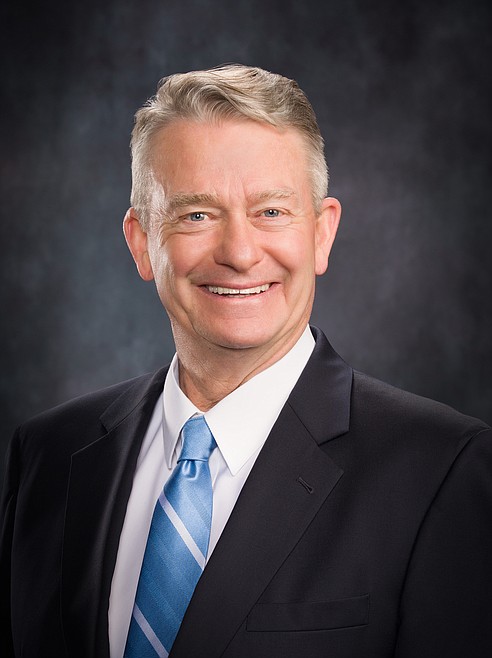Idaho lawmakers have not yet approved spending $900M in aid
BOISE (AP) — Idaho state lawmakers in a power struggle with Republican Gov. Brad Little say they should have been called back into session last year to distribute the $1.25 billion in coronavirus rescue money that Little doled out.
But now that the part-time, Republican-dominated Legislature has been in session for three weeks, lawmakers have yet to approve spending any of $900 million in new federal funding that the state has received despite urgent calls from groups saying it is needed immediately.
Little was authorized to allocate the first round of spending because the Legislature was not in session when the money came from the federal government. But the second infusion came in with the Legislature about to go into session, so it is up to them to do the job.
The money must be spent by the end of the year.
The new funding includes $851,000 for the Commission on Aging for meals on wheels for seniors, $164 million for rent assistance for workers who lost jobs, and $58 million so daycare centers can remain open for children and operate safely.
"It's on its way. It just takes a little time," said Republican House Speaker Scott Bedke. "It sometimes takes a little time to work its way through the pipeline. I assure you they're not delaying it."
The process involves supplemental budget requests that have to go through the Legislature's powerful budget committee, the Joint Finance Appropriations Committee, or JFAC. Then the spending must be approved by both the House and Senate.
"Governor Little is working closely with JFAC on all of his budget recommendations and will continue to do so," Marissa Morrison, Little's spokeswoman, said in an email.
But Little has no control over the Legislature's schedule for introducing legislation.
On Monday, 39 Idaho affordable home advocates sent a letter to the Legislature's budget committee asking them to approve the $164 million in rent assistance, saying 34,000 households are at risk of eviction or homelessness.
"A continued delay or failure to approve these funds will result in devastating consequences for Idaho's renters, landlords, and the economy," the letter states.
Lawmakers since convening on Jan. 11 have spent significant time and effort to put forward about a dozen pieces of legislation ranging from proposed laws to resolutions aimed at ending Little's coronavirus emergency declaration plus health orders that many lawmakers view as unneeded restrictions.
They are also advancing a constitutional amendment that would allow them to call themselves back into session, spurred by their dissatisfaction with Little's handling of the pandemic that included a stay-at-home order in March as the virus threatened to overwhelm hospitals. Currently, only the governor can call special sessions.
Lawmakers have also advanced budget legislation to increase their own operational funding by 26% to $8.5 million and another $4 million to pay for lawsuits filed against them.
In addition, lawmakers spent money on a private legal firm after the Idaho attorney general's office, at the request of a Democratic lawmaker, issued an opinion saying the Legislature's plan to use resolutions to end Little's coronavirus emergency declaration was likely unconstitutional. The law firm hired by Republican lawmakers said the opposite was true.
U.S. Rep. Mike Simpson and Bruce Newcomb, former Republican speakers of the Idaho House, last week criticized the Legislature and the concurrent resolutions, saying lawmakers had confused COVID-19 emergency declarations with public health orders, which are separate and found in different areas of Idaho law.
Also last month, Little criticized lawmakers in an angry speech on live television — accusing them of jeopardizing efforts to fight the coronavirus. He called on residents to contact their senators and representatives as they push forward legislation aiming to strip away some of his authority during a crisis like the pandemic.
Bedke defended the Legislature's actions.
"The Legislature absolutely does not want to inhibit the distribution of coronavirus vaccine or all of the ancillary efforts around that with the National Guard to distribute and to fill in the health care gaps," he said.
Little issued a temporary stay-at-home order for the state in March as the virus spread rapidly, overwhelming some hospitals and leaving health care workers scrambling for scarce protective equipment.
The lockdown gave the state and hospitals time to gather supplies, but unemployment spiked. Little lifted most restrictions over the summer, and unemployment dropped. But a virus surge in the fall led him to reinstate some restrictions, including restricting the number of people allowed to gather.
Little also set up a committee, including the two co-chairman of the Legislature's budget committee, to help decide how to spend the $1.25 billion in rescue money. Another committee was formed to advise the governor about vaccinations.
State officials report that nearly 163,000 residents have tested positive for COVID-19, and more than 1,700 have died.

